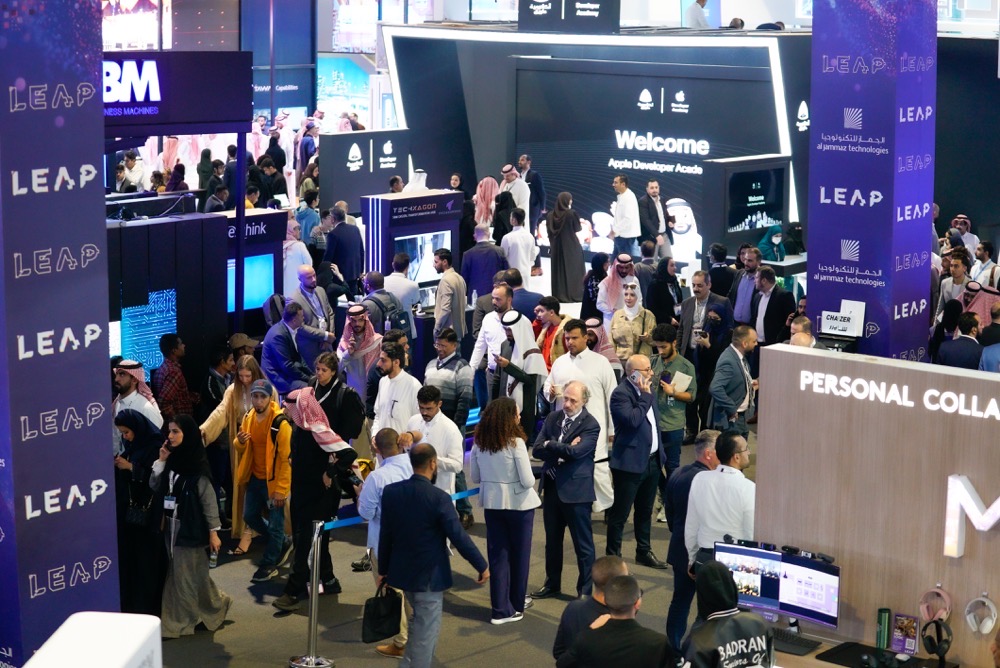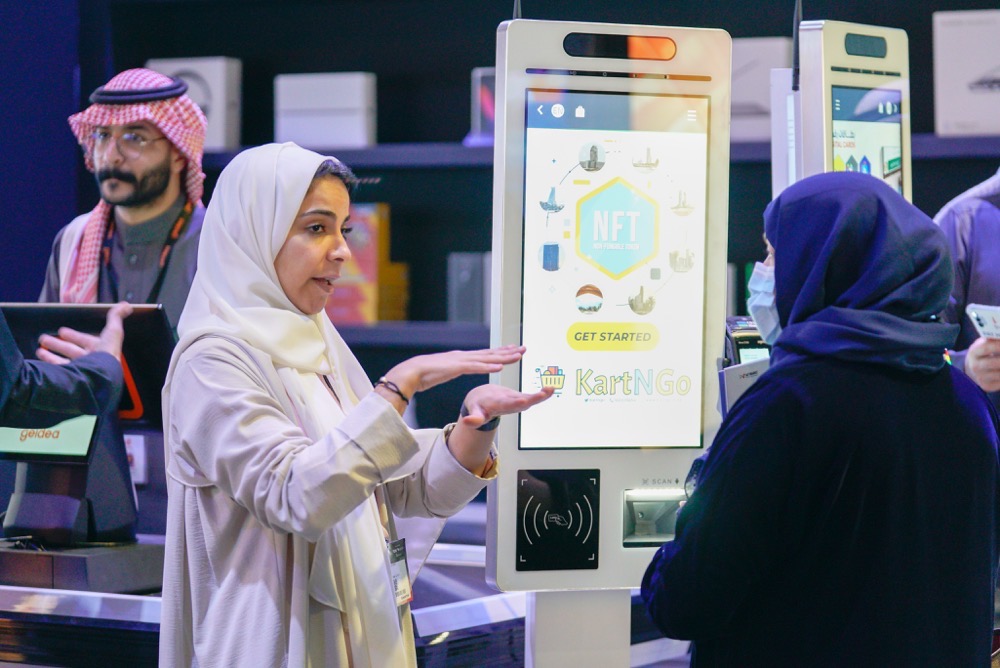RIYADH: While the digitalization of an economy is key to its technological advancement, it is also a way to ease daily life and provide jobs and opportunities for the young population.
As explored in several sessions at this year’s LEAP conference, this holds particularly true for Saudi Arabia as part of its Vision 2030 reform agenda.
According to the Saudi General Authority for Statistics, 36.7 percent of the Kingdom’s population is aged between 15 and 34. Due to an acceleration of the digital economy’s growth in the Kingdom, more than 1 million jobs are expected to be created by 2025, with a focus on technology and innovation.
“The transformation that is happening on the back of Vision 2030 is probably one of the biggest opportunities in the world right now,” said Mudassir Sheikha, CEO of Careem, during a panel themed Deep Dive: Unicorns of the World.
“I have been coming here for 15 years now and over the last five years you can see the change each month on the ground. The pace of change is incredible, and we know that when such change is generated at the macro level, it creates opportunity.”

In the second quarter of 2022, the unemployment rate for Saudi Arabia fell to 9.7 percent, fueled by government reforms directed at the labor market, according to data provided by GASTAT.
It is reflected by the participation rate of Saudis in the labor market, which grew by 1.7 percentage points to reach 51.8 percent. The employment-to-population ratio of Saudis also grew by the same amount, reaching 46.8 percent compared to the previous year, according to the GASTAT report.
Environmental and digital security are among the fastest growing fields in Saudi Arabia, according to data released on LinkedIn in January 2023.
Still, as Sheikha underlined, there are still many issues related to services and relevant providers that need to be solved. “This provides additional opportunities for the Saudi workforce,” he added. “There are many problems that still need to be solved. How do you solve those problems? You need to bring the right talent into the market.”
There is no shortage of human capital and talent in the Saudi market, he added. “With hard work and the right tools great things can happen. From my perspective, there’s probably no better place to be right now than in Saudi today,” he said.
FASTFACTS
• Saudi Arabia ranked 2nd in G20 digital competitiveness in the 2021 Digital Riser Report by the European Center for Digital Competitiveness.
• The Kingdom has attracted more than $9 billion in investment in future technologies.
• OECD estimates that 1.1 billion jobs will be radically transformed by technology.
The phrase “digital economy” reflects how the technological revolution is transforming value chains in exponential, revolutionary ways — endowing new opportunities for markets worldwide to generate social and economic change.
“There is a worldwide need for reskilling and upskilling. The OECD estimates that over the next decade 1.1 billion jobs will be radically transformed by technology,” said Chip Paucek, co-founder and CEO of 2U, Inc., a leading US provider of software for universities.
“What is happening right now with AI is a good example of this and we are excited about what is happening here in the Kingdom.”
A panel on the main stage of LEAP, titled “Roadmap to Building a ‘DigitALL’ Economy in the Kingdom & Solving the Talent Conundrum,” included a conversation with Chander Prakash Gurnani, global CEO of Tech Mahindra, and British journalist Adam Boulton, with the talks examining how Saudi Arabia is building an inclusive economy through rapid advancements and investment in technology.
“India’s 1.4 billion population will benefit from the Kingdom becoming a role model in technology,” said Gurnani. “The Kingdom is one of our major focus countries. It’s a beautiful opportunity for us to participate and be part of the growth. When you work backwards, you need people, processes, technology and more importantly, an ecosystem of both products and technology.”
 The Kingdom has attracted more than $9 billion in investment in future technologies, including by US giants Microsoft and Oracle, which are building cloud regions in Saudi Arabia, Saudi Minister of Communication and Information Technology Abdullah Al-Swaha told Reuters during LEAP on Monday.
The Kingdom has attracted more than $9 billion in investment in future technologies, including by US giants Microsoft and Oracle, which are building cloud regions in Saudi Arabia, Saudi Minister of Communication and Information Technology Abdullah Al-Swaha told Reuters during LEAP on Monday.
Al-Swaha added that China’s Huawei will also invest $400 million in cloud infrastructure for its services in the Kingdom, as well as create another cloud region in partnership with Saudi Aramco.
The Kingdom has also encouraged the use of AI to achieve Vision 2030 and Smart Government Strategy objectives. The plan is expected to result in the Kingdom’s AI market growing to $135.2 billion by 2030, which is estimated to contribute 12.4 percent to gross domestic product.
As most panelists stressed during the sessions at LEAP, while investment in tech is paramount to advancement in technology and economic growth, what is key is training the younger, eager Saudi labor force and readying them with education and opportunities for the fourth industrial revolution, with the Kingdom increasingly looking to be a center of the new technological age.

























